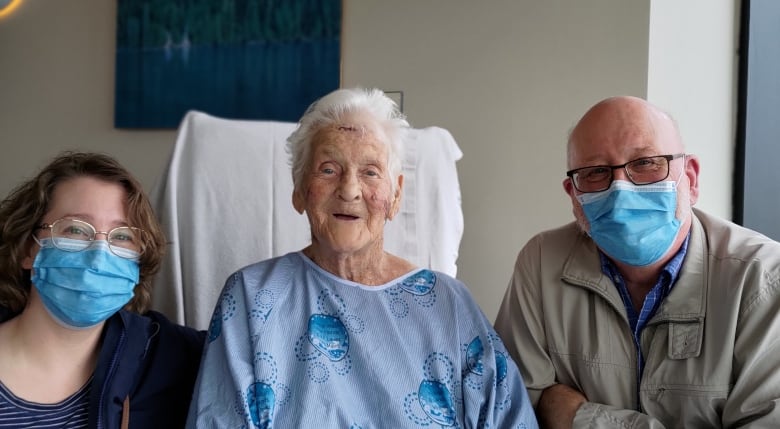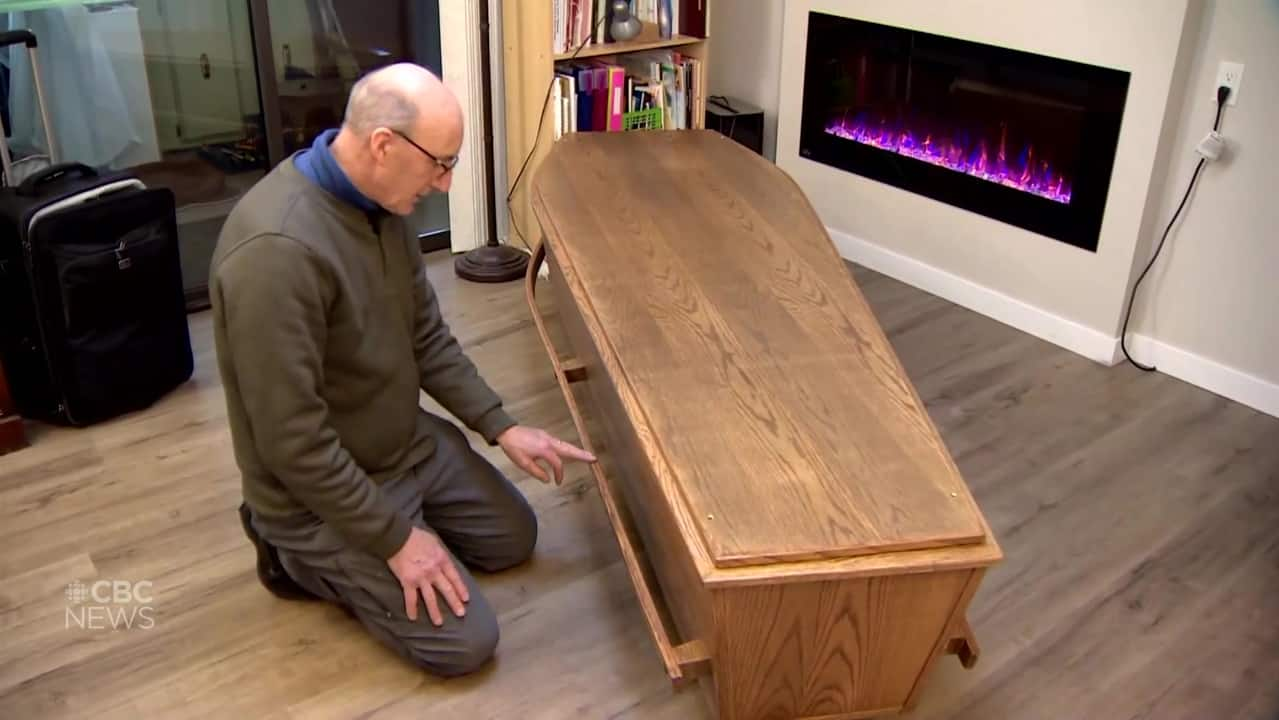This First Person article is the experience of Bonnie Sutherland, who lives in Kingston, Ont. For more information about CBC’s First Person stories, please see the FAQ.
I stood in my closet, unsure what to wear. I was going to a funeral, so black was the obvious choice. But I wondered if that would honour my grandmother. After all, the day I was ordained as a minister in the Presbyterian Church in Canada, I told her I had bought a robe. She looked at me and said, “It isn’t black, is it?”
It’s not that my grandma hated black, but I think she thought a minister who shares the love of God should wear a far more joyful colour. What she didn’t know was that my options as a minister were white and black, and white gets dirty easier.
My choice was purely practical. I wanted to honour her, but I knew that whatever I wore wouldn’t matter to her as much as the words I spoke and the way I carried the service. Yes, I was not only attending my grandmother’s funeral, but I was also officiating.
One month earlier, I had been at her bedside. My dad and aunt had been keeping vigil around the clock and I dropped in every day with my older sibling. Grandma was almost 98 and her kidneys were failing. Her wits were still sharp.
When my husband and I brought our son to her bedside, he presented her with a small origami boat he had made. She was sitting up in her bed, and as she held the paper boat she said, “Thank you. Now I can sail away.”

Then she proceeded to sing songs with actions as if she were teaching Sunday school — which she had for much of her adult life.
She had sang songs and done crafts with kids her whole life, and here she was, on her deathbed, singing for her six-year-old great-grandchild who had come to see her for the last time.
As her grandchild, I was one of the kids who experienced her creativity and joy. Whenever we visited, she and Grandpa would make sure we had fun: fireworks and sparklers, swimming and games, songs and crafts filled our days. She believed children were precious and she showed us the simple joys of this life God has given. When she took charge, we knew we were in for an adventure.
Her granddaughter and her minister
In addition to being her grandchild, I was also her minister. Her church had closed in June 2022 and difficulties with her health and mobility were such that she would never attend church again. So one day when I came to visit, she asked if she could join my church and I could be her minister. I was happy to oblige her. She also said she wanted her minister to officiate her funeral. It made sense.
We would pray when I visited, and even though she would hijack my prayers with ones of her own, I felt so loved and blessed by her. She may have blessed me more than I did her.
The week before she died was hard. Over the course of my nine-year career, I have officiated many funerals for my congregants and their loved ones.
Often, I visit a dying person once to say a prayer for them as they face their final journey, and for their family and friends who will miss them. There is usually some distance between me and them, which allows me to be of clear mind and provide comfort as I lead them through funeral decisions that they often don’t have the presence of mind for.
This time, there was not much distance. And my mind was not so clear. I felt caught between my roles of granddaughter and minister, mourner and comforter. Still, I read scripture to her, prayed with her and held her hands. I broke down. I sang familiar hymns and just sat there with my family.
The day before she died, she was barely able to open her eyes, but she heard someone come in and say, “Happy Canada Day.”
She lifted her arm and pointed to the wall beside her. It took a moment for my dad to understand her: she wanted him to turn the page on the calendar. A calendar she would never see again, but still wanted to be right.
That night, she closed her eyes for the last time. Grandma died in the early morning of July 2, 2023.
So, there I was, one month later, on her 98th birthday, standing in front of family and friends — fellow mourners, including me — leading her funeral.
Why did I decide to do this? Part of me didn’t want to, but the part that won out wanted to do her justice and this was the only way I could make sure that would happen.
It was exhausting.
Afterward, I looked my parents in the eye and said, “I’m not doing either of your funerals.”
Not because I don’t care about how their funerals are carried out, but because sometimes, I just want to be a person and not the minister. I want to be comforted and not the one to give comfort. I don’t want to speak; I want to be spoken to. I do not want to give hugs; I want to be hugged.
Most often, I prefer my role as minister to be delineated from my roles of partner, mother, daughter or friend. I made an exception in this case, and through it, I learned that comfort can be given and shared and spirits can be nurtured in the simplest of ways with the people who are closest to our hearts. My grandma and I shared these things during the last few months of her life and I will always remember that she was also a minister to me during this time.
Do you have a compelling personal story that can bring understanding or help others? We want to hear from you. Here’s more info on how to pitch to us.




